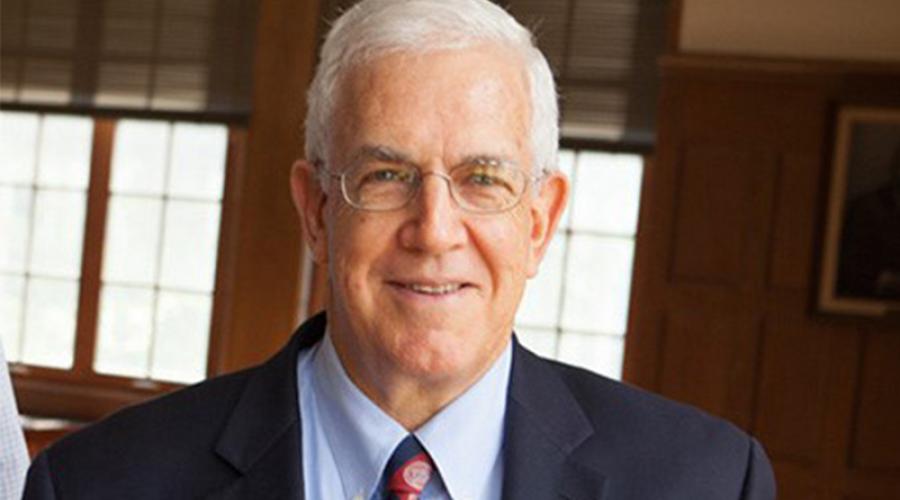
Community at the Center of Life: Ehrenberg’s Enduring “Last Lecture”
Acclaimed labor economist.
Former Cornell vice president and trustee of Cornell and the State University of New York.
The university’s first Irving M. Ives Professor.
Founder of the Cornell Higher Education Research Institute.
Recipient of lifetime achievement awards from two professional associations and of honorary doctorate degrees from two universities.
Named a Stephen H. Weiss Presidential Fellow; Cornell’s highest award for sustained high quality undergraduate teaching.
Honored with an endowed Cornell professorship established in his name.
Doctoral committee chair for over 50 Ph.Ds.
Professor Ronald G. Ehrenberg wears many mantles.
The most important ones for him, however, are softer.
Husband, father, mentor.
Ehrenberg shares openly with his students his fear of failure that began when he was four years old and nearly drowned in an upstate lake. He feared failure as a young faculty member whenever he wasn’t generating fresh ideas. Everyone has fears; it’s part of life, he tells students.
The professor often speaks of his family’s experience during the 18-year illness that led to the loss of his older son to cancer, his younger son’s struggle with, and recovery from, cancer, a heart attack and a stroke (all within the past year), and about the value of family and community and caring for one another.
Over the decades, many have listened, closely.
Dominic Brewer, Ph.D. ’94, the Gale and Ira Drukier Dean of New York University’s Steinhardt School, said, “Ron showed me how we endure tragedy; how we live in the moment and draw our loved ones close and make a family.”
Amanda Griffith, Ph.D. ’09, associate professor at Wake Forest University, said, “Ron’s caring has always extended well beyond his students’ academic work, to their personal lives. Ron educates the whole person, not just the economist.”
The openness that has earned Ehrenberg so much respect from his students continues. His colleagues know why he is teaching just one class this semester and one in each of the next two fall semesters before he formally retires; Ehrenberg is fighting extreme fatigue brought on by advanced kidney disease.
Under the care of physicians in Ithaca and at the University of Rochester Medical Center, Ehrenberg is hoping to receive a kidney transplant. Days count. Doctors tell him that without a kidney transplant, he will need to begin dialysis within a few months.
Ehrenberg has been on the waiting list for a deceased donor kidney transplant at Strong Memorial Hospital in Rochester for over two and a half years and has an expected wait time of another four years. There is no guarantee that he will still be healthy enough to receive a transplant at that time. So, Ehrenberg continues to search for a live kidney donor. A kidney transplant leads to a longer expected lifetime and a higher quality of life than dialysis.
In 2017, many of Ehrenberg’s former students gathered for a celebration of his legacy. Affectionately dubbed the “Ronathon,” the event included a compilation of tributes and academic essays, along with Ehrenberg’s 2004 “last lecture,” which he has shared for 15 years with his students.
Presented initially at the request of the Cornell chapter of the Mortar Board honor society and then a second time at Cornell’s Class of 1964’s 45th reunion, the lecture is considered by Ehrenberg as perhaps his most important piece of writing. It recounts his family’s journey through his older son’s illness and the lessons they learned about what’s really important in life.
One of the lessons, Ehrenberg tells students, is the importance of friends and community. “Life is with people and having a community that you can turn to in times of need and can contribute to throughout your life is very important.”
The best sources of information on live kidney donations are the United Network for Organ Sharing and the National Kidney Foundation. Anyone considering being a kidney donor for Ehrenberg can contact Strong Memorial hospital at 585 275 7753; the second prompt will connect you to living donor services, where the process will be explained.


